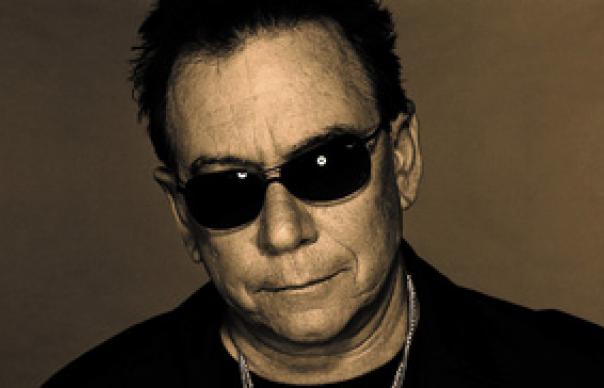As Eric Burdon And War:
Eric Burdon Declares War (1970) 2*
The Black Man’s Burdon (1970) 2*
Love Is All Around (1976 compilation) 3*
As War:
War (1971) 3*
All Day Music (1971) 3*
The World Is A Ghetto (1972) 4*
Deliver The Word (1973) 4*
War Live! (1975) 3*
Why Can’t We Be Friends (1975) 3*
Platinum Jazz (1977) 2*
Younglood OST (1978) 4*
They jammed with Jimi Hendrix at Ronnie Scott’s a few hours before his fatal overdose. They scored a string of platinum-selling albums, and huge, million-selling singles – like 1975’s “Low Rider” – that still get played today. So why has it taken so long for the LA funk collective War to get their entire catalogue released on CD?
This deluge of belated releases (which precedes a Royal Albert Hall show on April 21) shows that War, at their best, could hold their own against Sly, George, Curtis, Stevie or the Isleys. That’s not to say that this is an unblemished canon, partly due to the presence of Eric Burdon, who commandeered them as his backing band in 1969 for two decidedly patchy pub-blues albums.
Burdon’s messy mid-tour divorce from the band in 1970 proved to be War’s making. If they lacked a charismatic frontman, most of them had heavenly voices and the albums started to develop their own identity. With 1971’s self-titled War and All Day Music, they patented a potent Latin funk stew – Afro-Cuban beats overlaid with big R&B hollers and the eerie harmonica playing of Lee Oskar, who sounds more like Augustus Pablo than Stevie Wonder.
The World Is A Ghetto (America’s best selling LP of 1973, amazingly) is seen by some as an African-American
As Eric Burdon And War:
Eric Burdon Declares War (1970) 2*
The Black Man’s Burdon (1970) 2*
Love Is All Around (1976 compilation) 3*
As War:
War (1971) 3*
All Day Music (1971) 3*
The World Is A Ghetto (1972) 4*
Deliver The Word (1973) 4*
War Live! (1975) 3*
Why Can’t We Be Friends (1975) 3*
Platinum Jazz (1977) 2*
Younglood OST (1978) 4*
They jammed with Jimi Hendrix at Ronnie Scott’s a few hours before his fatal overdose. They scored a string of platinum-selling albums, and huge, million-selling singles – like 1975’s “Low Rider” – that still get played today. So why has it taken so long for the LA funk collective War to get their entire catalogue released on CD?
This deluge of belated releases (which precedes a Royal Albert Hall show on April 21) shows that War, at their best, could hold their own against Sly, George, Curtis, Stevie or the Isleys. That’s not to say that this is an unblemished canon, partly due to the presence of Eric Burdon, who commandeered them as his backing band in 1969 for two decidedly patchy pub-blues albums.
Burdon’s messy mid-tour divorce from the band in 1970 proved to be War’s making. If they lacked a charismatic frontman, most of them had heavenly voices and the albums started to develop their own identity. With 1971’s self-titled War and All Day Music, they patented a potent Latin funk stew – Afro-Cuban beats overlaid with big R&B hollers and the eerie harmonica playing of Lee Oskar, who sounds more like Augustus Pablo than Stevie Wonder.
The World Is A Ghetto (America’s best selling LP of 1973, amazingly) is seen by some as an African-American
Best of all might be 1978’s obligatory blaxploitation soundtrack
JOHN LEWIS
UNCUT Q&A: War keyboardist Lonnie Jordan and singer Eric Burdon:
There’s a very loose, improvisatory feel to the music…
Lonnie: All of our songs came out of jam sessions. You’d get a guitar riff, or a bassline, and we’d all improvise over the top, and someone would start hollering – and we’d start rolling the tape.
Where did the Latin feel come from?
Lonnie: None of us were Cuban or Puerto Rican, but people often thought we were. Papa Dee Allen used to hang out with the Fania crowd on the East Coast, and the rest of us came from mixed neighbourhoods in LA like Compton, Long Beach, Harbor City, San Pedro and Watts, so we were always exposed to Latin music.
Why did you leave?
Eric: It was after Jimi Hendrix’s death that I had what was, in retrospect, a nervous breakdown. I was messed up and disgusted with the record industry and I left the tour. But I’m glad the guys carried on. They made some pretty salty music after I left!
INTERVIEW: JOHN LEWIS



